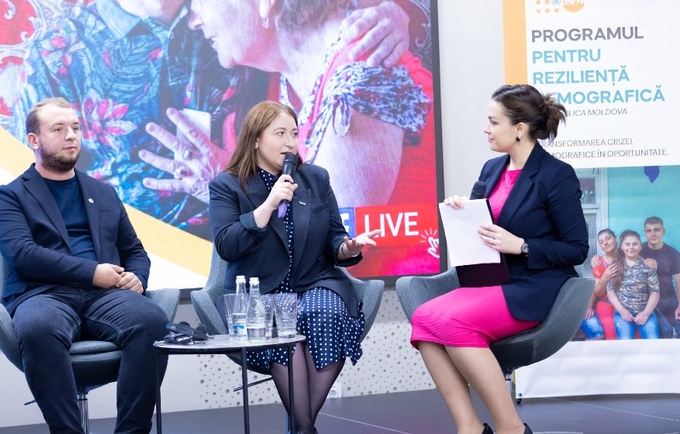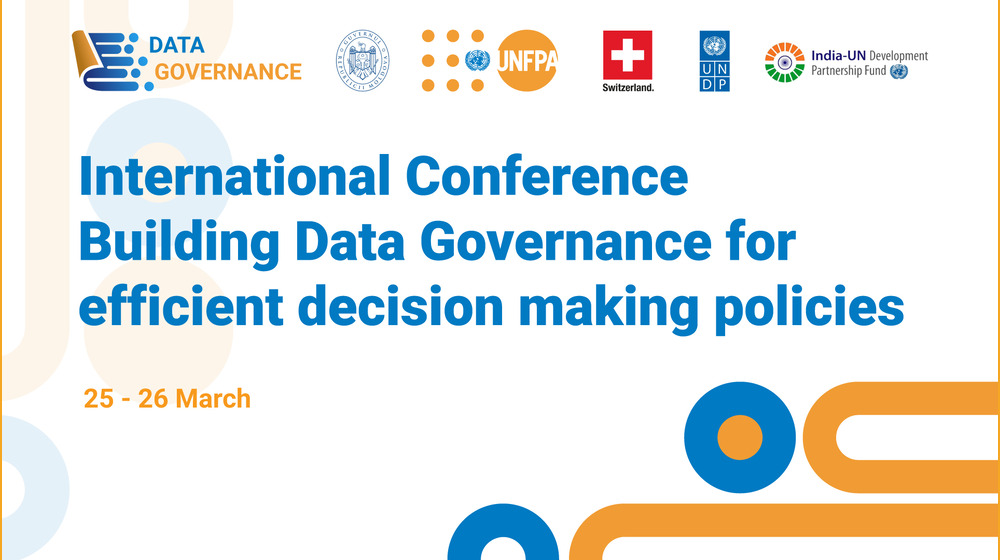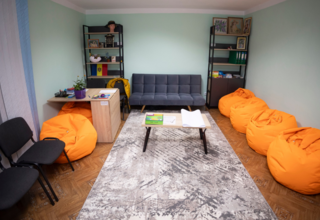Older people who are lifelong learners are more likely to age actively and less likely to live alone. At the same time, young people who use the Internet, have high incomes and high levels of education are more likely to help financially and take care of older population. These are several findings of two studies launched today at a public debate organised by the UN Population Fund (UNFPA) in collaboration with the Ministry of Labour and Social Protection of the Republic of Moldova.
The event is part of the series of debates organised under the Demographic Resilience Programme, through which UNFPA supports the authorities in developing demographic policies based on reliable data and on people’s real needs. The work was based on data from the Generations and Gender Survey, the largest demographic study monitoring several demographic aspects of changes in the population, including young people’s fertility intentions and how important digital skills are for the intergenerational dialogue.
„UNFPA, through its programmes, encourages the engagement of young people in the development of older people's digital skills and promotes active and healthy ageing, including by advocating for lifelong learning opportunities, access to the labour market, quality social and health services, and opportunities for older people to be actively involved in community life. These are key measures that would help to overcome the demographic challenges of an ageing population and harness the potential of older and young people for the country's demographic resilience”, said Nigina Abaszada, UNFPA Moldova Resident Representative.
One of the main findings of the studies was that lifelong learning gives older people a better chance to age actively, have a job and at the same time, have lower risks to end up living alone. Digital skills are also important for both younger and older generations. Also, according to the analyses, such skills will give to older people the opportunity to stay active on the labour market, to participate in the community life, which will help to increase the well-being and reduce the feeling of loneliness.
Felicia Bechtoldt, State Secretary at the Ministry of Labour and Social Protection, reiterated the importance of such studies, which provide the necessary data for the development of certain efficient demographic policies.
„The Ministry of Labour and Social Protection aims to ensure that the policies in the area of population development ensure the country's resilience and come up with concrete actions. Social opportunities for older people, age-friendly community services, expansion of the national network of digital mentors to help older people to use the internet are just some of the priorities of the Ministry”, said Felicia Bechtold, State Secretary at the Ministry of Labour and Social Protection of the Republic of Moldova.
The data from the study launched during the debate show that one in five persons in urban areas and one in ten persons in rural areas provides financial support and personal care to the older population. This confirms the acute feeling of loneliness of older people in rural areas.
„The principle of active and healthy ageing needs to be mainstreamed not only into demographic policies, but into all sectoral policies, in order to leave no one behind and to fully tap the potential of older people, who must be seen as active members of society”, said Lisa Warth, Chief, Population Unit, United Nations Economic Commission for Europe (UNECE).
The study also shows that the high level of young people’s migration intensifies the problems related to loneliness, depression and social integration. 17% of the country’s population experience moderate or severe states of loneliness, with people aged 65-79 most at risk. The study also reveals that health, relationship, employment are just some of the factors that influence the feelings of loneliness.
Note that these findings are among the priorities of the National Programme on Active and Healthy Ageing developed by the Ministry of Labour and Social Protection in partnership with UNFPA, which is to be launched by the end of this year.
The authors of the analyses also made some policy recommendations. Here are some of them:
- Family policies to support young people in their fertility intentions must integrate intergenerational support – grandparents’ help in raising children;
- Employment is a risk factor for older people. Creating age-friendly workplaces would make it easier for people to be employed for a longer period of time. This also includes policies to support flexible working schedules and inclusive workplaces for people with disabilities;
- Social participation is another risk factor for the older people. Social policies should focus on lifelong learning programmes, employment and digital skills development and on volunteering – these activities are the most efficient in reducing loneliness;
- The policies for promoting active ageing should focus on the needs of the rural population: providing internet, cable TV and mobile phone facilities. These are the main sources of information for people who live in isolation;
Representatives from central public authorities, UNFPA, together with national and international experts on ageing and civil society researchers participated in the debate in order to propose evidence-based policy solutions.
GGS in the Republic of Moldova is implemented by the UN Population Fund in partnership and with the financial support of the Ministry of Labour and Social Protection (MLSP) and India-UN Development Partnership Fund. The project partners include the Netherlands Interdisciplinary Demographic Institute (NIDI) and the National Bureau of Statistics (NBS), which developed the study sample.




